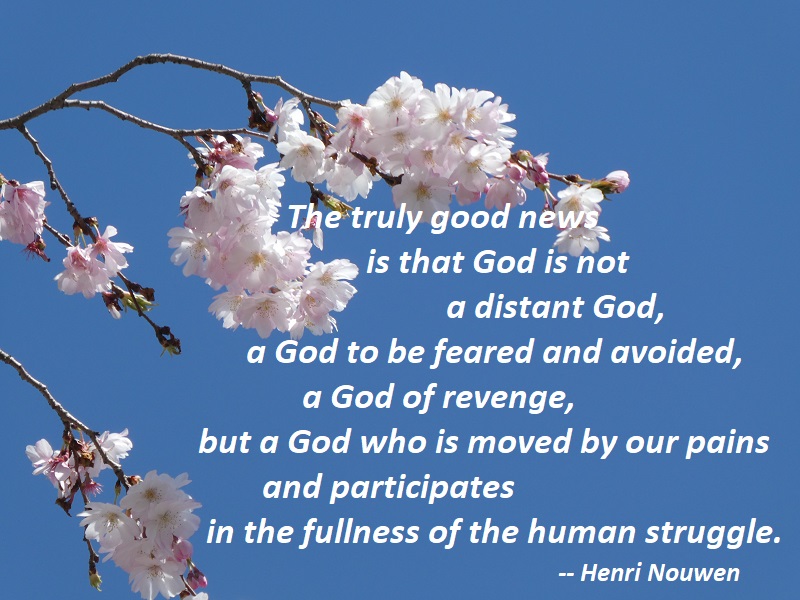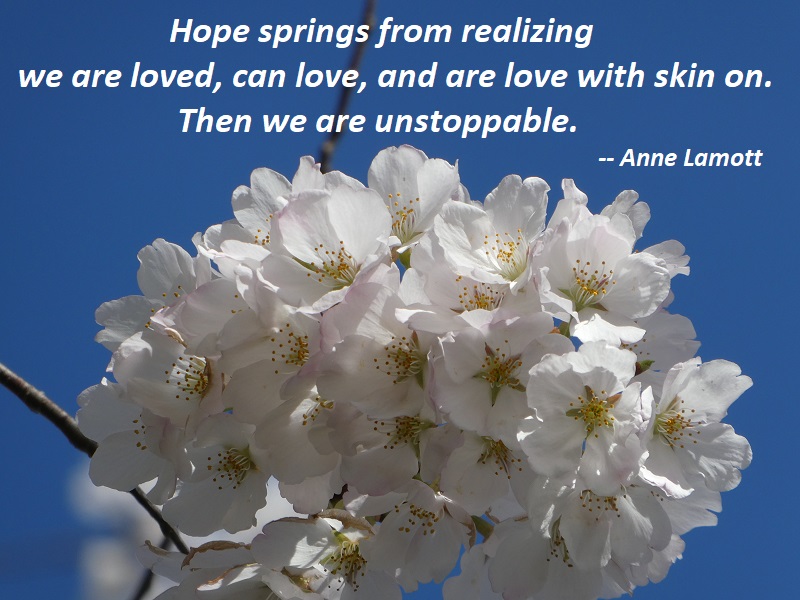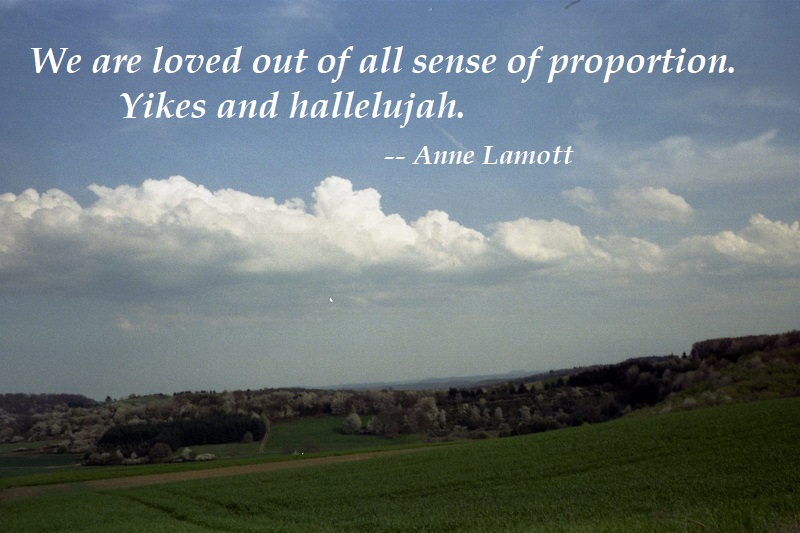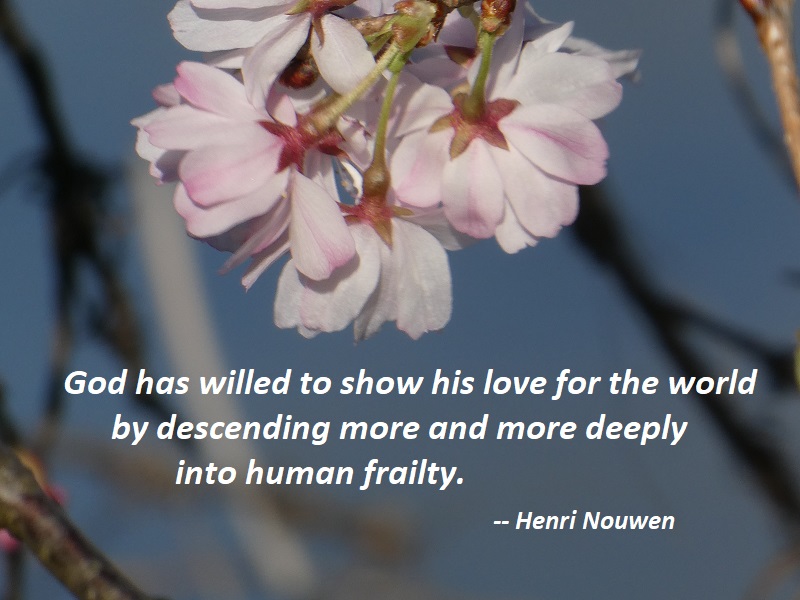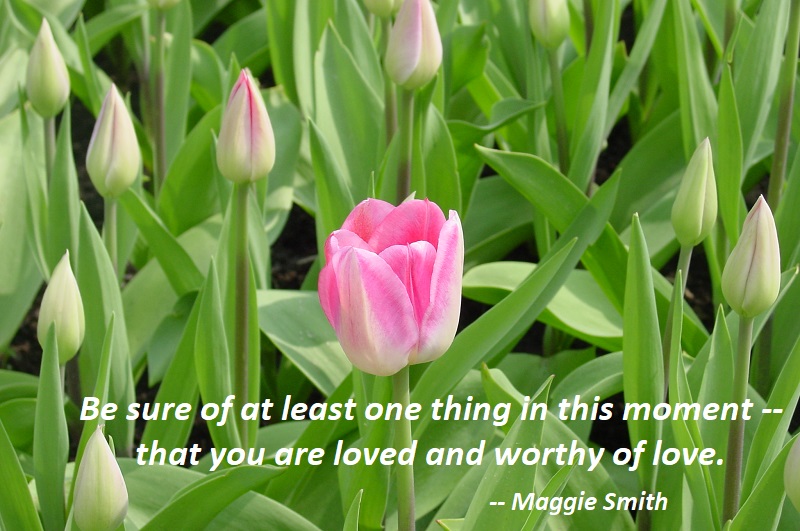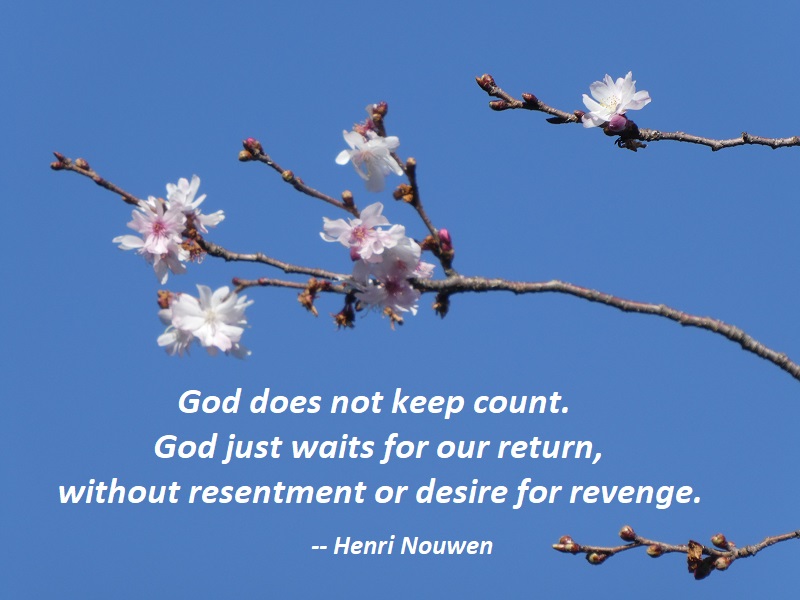
This morning I meditated on God’s eagerness to forgive me, revealed in these words: “As far as the East is from the West, so far does God remove my sin” (Psalm 103:12). In the midst of all my distractions, I was touched by God’s desire to forgive me again and again. If I return to God with a repentant heart after I have sinned, God is always there to embrace me and let me start afresh. “The Lord is full of compassion and love, slow to anger and rich in mercy.”
It is hard for me to forgive someone who has really offended me, especially when it happens more than once. I begin to doubt the sincerity of the one who asks forgiveness for a second, third, or fourth time. But God does not keep count. God just waits for our return, without resentment or desire for revenge. God wants us home. “The love of the Lord is everlasting.”
— Henri J. M. Nouwen, You Are Beloved, p. 87
Photo: South Riding, Virginia, March 19, 2021




